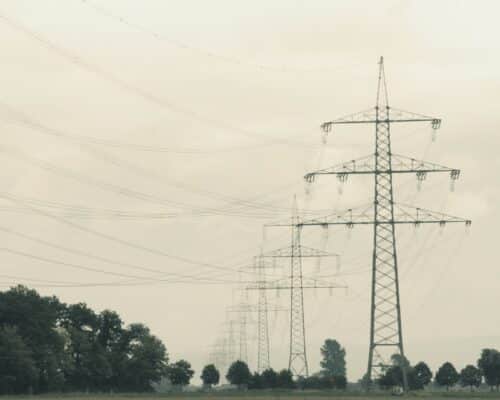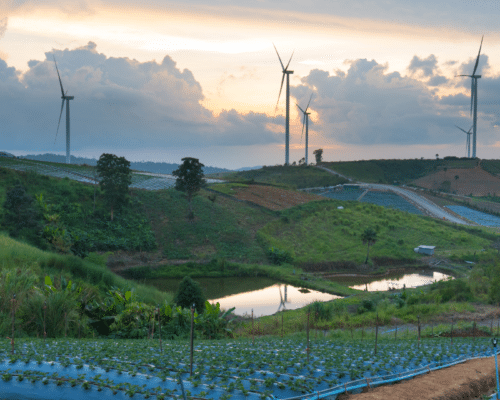Azerbaijan to Host COP29 in 2024: What to Expect
08 January 2024 – by Viktor Tachev Comments (0)
The question of where COP29 will be held was settled just before the closing bell of COP28. The choice to elect Azerbaijan as the host country for COP29 2024 means that three leading oil and gas producers will host the main climate conference in a row during a very crucial time in our history. While there are worrying signs that the climate summit might fail to produce a meaningful outcome, Azerbaijan can use the occasion to prove the doubters wrong.
How Azerbaijan Won the Presidency of COP29
The hosts of the Conference of the Parties are chosen on a rolling basis between the five UN regional groups. Every year, regional group members hold consultations to determine which country from their region will apply to host the summit. The UNFCCC secretariat then decides on the applications.
Eastern European Group
For the 2024 edition of the conference, it is the Eastern Europe Group’s turn to elect a host. The group contains 23 eastern European nations, including former Soviet states and nations from the Caucasus region. The main countries competing for the COP29 presidency included two EU nations, Bulgaria and Slovenia, as well as Moldova, Azerbaijan and Armenia.
Bulgaria, whose bid was backed by the EU, was well positioned to become the next host until Russia vetoed the selection of countries that had condemned its invasion of Ukraine. Since the UN mechanism for choosing the COP host requires consensus, the election reached a standoff. As a result, Russia managed to slow the process through its veto power.
After a months-long deadlock, geopolitical arguments led to the election of Azerbaijan as the next COP29 host.
The COP presidency informally begins its work before the end of the previous COP. In its role, Azerbaijan will now have a year of lobbying global governments and other stakeholders to lay the groundwork for an ambitious final text. When COP29 kicks off, the host will influence its agenda and outcomes.
What Can We Expect From Azerbaijan as the COP29 Host?
COP29 will be pivotal. It will take place while countries are in the process of creating and submitting their updated NDCs.
Since the presidency is responsible for putting pressure and requesting more ambition from parties on aspects like climate policies, targets and financing pledges, choosing a host has massive implications for the global energy transition.
In the context of COP29’s presidency, Bulgaria could have served as the EU’s tool to demonstrate its climate leadership. While the EU’s climate reputation isn’t flawless, including importing sufficient amounts of gas from Azerbaijan to break its dependence on Russian imports, the bloc has the most ambitious climate policies of all developed countries. Furthermore, it demonstrates notable progress, including expedited coal phaseout, reduced gas use, increased clean energy adoption and substantial financial support for climate-vulnerable nations. The EU also has a legally binding emissions reduction target of 55% by 2030. The bloc’s advisory board on climate change is even considering whether to increase the goal to 90% or 95% by 2040. Besides, the EU’s climate commissioner expressed the bloc’s desire to “end the anomaly of fossil fuel subsidies”. Several countries, led by the Netherlands, have already started the crackdown.
On the other hand, Azerbaijan has a different profile and energy policy focus. This became a reason for many activists to wonder whether COP29 would become just another failed climate conference. The arguments behind these concerns include Baku’s close ties to Moscow, the country’s oil and gas focus and its questionable human rights track record.
Another Oil and Gas Producer to Host COP after United Arab Emirates Hosted COP28
Once it became clear that Azerbaijan had won the presidency, Eastern European officials reportedly expressed disappointment, claiming that having another “oil country” as the climate conference’s host meant “the world will never go green”.
After Egypt (COP27) and the UAE (COP28), Azerbaijan will become the third fossil fuel producer in a row to host the climate conference.
Azerbaijan is a major oil producer. Oil and gas production is responsible for around 50% of Azerbaijan’s GDP and more than 90% of its exports.
Right after Azerbaijan had won the COP29 presidency, senior officials started promoting the nation’s gas reserves as a tool to aid the energy transition and gas as “much cleaner” than other energy sources.
Asked about the fears of climate activists that COP29 would result in a subpar outcome, Hikmet Hajiyev, foreign policy adviser to the Azerbaijani President, said that oil-exporting nations should lead by example.
Yet, he admitted there was no clarity on when Azerbaijan would stop drilling for oil. He also added that the country supported “a transitional approach” instead of an immediate fossil-fuel phaseout. Furthermore, the official insisted there was an extended need for using fossil fuels beyond energy demand, including for plastics production.
Questions Over Human Rights
At COP28, leaders highlighted the importance of working in close collaboration with Indigenous peoples. While they represent just 5% of the global population, they protect 80% of the world’s remaining biodiversity. As a result, capitalising on Indigenous knowledge will be a key focus of the UAE-Brazil COP28-to-COP30 partnership.
Furthermore, every year, COPs become a stage for protests and marches by civil society groups expressing disappointment in the lack of progress. However, during COP28, the demonstrations were restricted.
Similar to the UAE and Egypt, the conference’s previous hosts, Azerbaijan also has an autocratic regime.
With a 9/100 score on the Freedom House’s index, which tracks political rights and civil liberties, Azerbaijan ranks as “not free”. According to Amnesty International, Azerbaijan lacks freedom of expression. Furthermore, the organisation adds that authorities carry out arbitrary arrests and politically-motivated prosecutions of activists, opposition leaders and academics. Independent organisations and media outlets face pressure, while women and girls face discrimination.
While these findings don’t instil hope for the inclusiveness of COP29, Azerbaijani leadership can take the opportunity to turn things around. Despite all the fanfare about the inclusivity of COP28, the conference was a blow to Indigenous peoples. Fossil fuel lobbyists outnumbered Indigenous leaders by seven to one. The fossil fuel industry representatives exceeded even the combined total of the delegates of the 10 most climate-vulnerable countries.
COP29 should set the stage for COP30 in Brazil to start a meaningful dialogue with Indigenous communities and include them in the decision-making process. Moreover, the UN should ensure that COP29 will be a conference where freedom of speech for civil society and vulnerable groups is a right that is respected, not suppressed.
Towards COP29 Climate Summit 2024
After winning the COP29 presidency, Azerbaijani officials urged to be “very realistic” regarding the use of fossil fuels.
The reality is that the world’s top scientists, market experts, energy agencies and virtually all stakeholders, aside from petrostates and big polluters, warn that we should move away from fossil fuels as soon as possible. Every year of stalled progress means another 12 months of piling up emissions, worsened climate change impacts, deaths, and loss of livelihoods and ecosystems.
Experts believe that petrostates, led by Russia, which has recently grown its ties to Baku, will use COP29 as an opportunity to sabotage the progress made so far and backtrack.
However, Azerbaijan has everything needed to prove the doubters wrong. The country has already shown that it isn’t afraid of ambitious projects. For example, it is building a transmission cable under the Black Sea to transfer green energy to countries like Bulgaria, Romania and Hungary. During COP29, it can also lead the world to agree on a new quantified collective financing goal to replace the USD 100 billion target that developed countries have repeatedly failed to meet.
Azerbaijan has the unique opportunity to remain in history as the fossil fuel nation that went against the grain to prove that regardless of the vested interests, there is a common goal that we should all unite towards: curbing emissions and ensuring a liveable future.
by Viktor Tachev
Viktor has years of experience in financial markets and energy finance, working as a marketing consultant and content creator for leading institutions, NGOs, and tech startups. He is a regular contributor to knowledge hubs and magazines, tackling the latest trends in sustainability and green energy.
Read more





